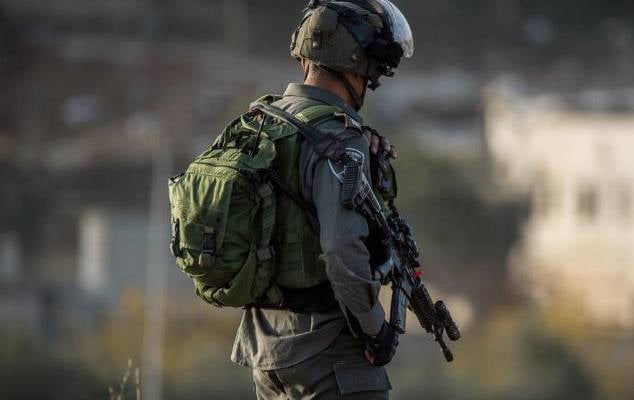The 31 fighters underwent intensive training designed to prepare them for the complexities of modern warfare.
By Pesach Benson, TPS
A groundbreaking ceremony marked the graduation of the first Haredi, or Orthodox Jewish recruiting class of combat fighters within the Israeli Border Police in Beit Horon on Sunday.
The event saw 31 Haredi men, graduates of the “Avneit” unit, complete their rigorous training and officially join the ranks of the Border Police, a paramilitary unit within the Israel Police that focuses on border security, counterterrorism, and maintaining internal security.
“This is not only about bolstering our forces with more manpower, but it is a strategic move that brings together the people of Israel, united as one,” said Minister of National Security Itamar Ben-Gvir.
“This program faced many challenges, but we persevered to create a path for Haredi youth to serve while maintaining their religious identity. The country, your families, and the people of Israel are proud of you.”
Stressing the significance of combining combat service with Torah study, Ben-Gvir told the graduates, “You are living proof that both can be done.”
Over the last four months, the 31 fighters underwent intensive training designed to prepare them for the complexities of modern warfare.
This included skills in urban and open-area combat, first aid, policing powers, Krav Maga combat skills, operational fitness, and the handling of crowd control and dispersal measures.
In addition, they were trained in advanced technology, operational vehicle driving, and moral education.
Their training culminated in a real-world operational experience during a mission at the Shuafat refugee camp near Jerusalem.
One unique aspect of their training was the accommodation of their Haredi lifestyle.
The program allowed time for prayers, Torah study, and religious guidance, ensuring the men could maintain their spiritual commitments while preparing for their military duties.
Rabbis from the IDF oversaw the religious aspects of the program, ensuring the fighters were spiritually supported throughout their training.
“The training these fighters underwent was uncompromising, both in professionalism and in accommodating their religious values. They have created a unique blend of tradition and combat readiness, and they stand here today as a symbol of this combination,” Commander of the military school, Sub-Commissioner Jihad Hassan.
The Haredi fighters will be deployed to the Border Guard units surrounding Jerusalem tasked with counterterrorism operations, preventing the infiltration of illegal residents, and maintaining the security of Israel’s capital.
Social debate over Haredi national service has become more heated in recent months.
The Israel Defense Forces began making plans to draft yeshiva students after Israel’s High Court of Justice ruled in June that exemptions for the Haredi community were illegal.
The move could potentially topple the governing coalition when the Knesset begins its winter session in October after the Jewish holidays.
Military service is compulsory for all Israeli citizens.
However, Israel’s first Prime Minister, David Ben-Gurion, and the country’s leading rabbis agreed to a status quo that deferred military service for Haredi men studying in yeshivot, or religious institutions. At the time, no more than several hundred men were studying in yeshivot.
However, the Orthodox community has grown significantly since Israel’s founding.
In January 2023, the Central Bureau of Statistics reported that Haredim are Israel’s fastest-growing community and projected it would constitute 16% of the population by the end of the decade.
According to the Israel Democracy Institute, the number of yeshiva students exceeded 138,000 in 2021.
That demographic growth has fueled passionate debates about “sharing the burden” of military service, the status of religious study in a Jewish society, and Haredi integration.
The war against Hamas has stretched the army’s manpower needs, sharpening the national debate. The Press Service of Israel found that Haredi attitudes towards military service have softened since Hamas’s October 7 attacks.
